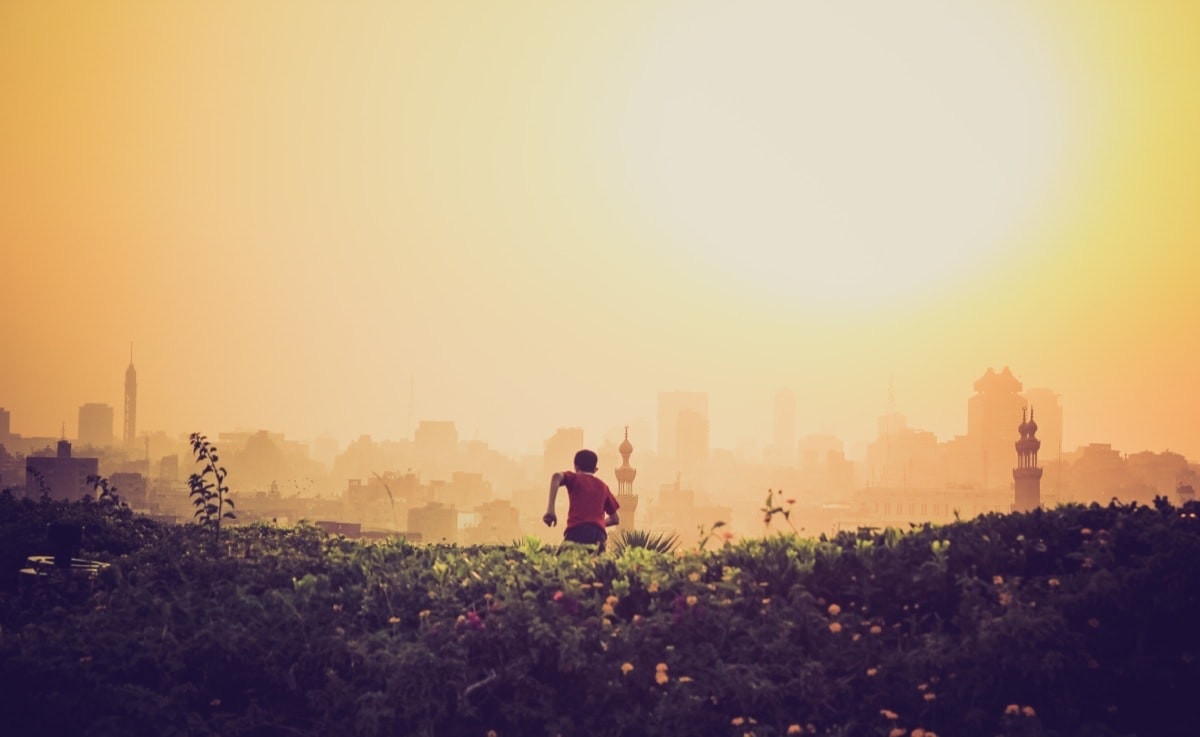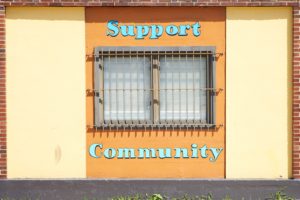Abstract
In any sort of immersive educational experience, growth occurs through gains in self-awareness and perspective. This growth results directly from the discomfort experienced when your personal episteme and culture differ from that of your new environment. This article introduces the term “uncomfort” and describes how discomfort emerges from the divergent evolution of the shared values in our global village, whereas uncomfort is what we experience when someone or something goes against our shared values.
Discomfort
Do you ever leave home and notice that you feel unsettled? When you leave the city, the roads change from five lane highways to one lane farm-to-market roads, or perhaps even dirt roads. When you leave the city, your cell phone service worsens, your food options become more limited, and your sense of security shifts. Perhaps you leave your rural community and cannot sleep due to the light and noise pollution of the big city. Perhaps you leave your rural community and notice the accelerated pace, the impersonal interactions in a store, and your sense of security shifts when you are forced to take the uptown subway during rush hour.
These changes are magnified when you step into a different culture. Currency, customs, languages, and laws are different. The way people look, dress, and interact may deviate from what you deem as normal. Your ability to communicate, purchase, and lead your authentic life may be restricted.
Yet, while each culture may eat different foods, speak different languages, and perform their masculinity and femininity differently, they almost always share the same values. However, the values manifest differently based on their unique collective experience.
For example, while earning my Masters in Public Health, I had the opportunity to spend the summer in Tamil Nadu, India, working for a health-tech startup. I was based in a small village, about an 8-hour train ride from Chennai. Whenever we left the office for lunch, a local Indian colleague would grab my hand. The first time his big, hairy hand reached for mine, I instinctively jumped and pulled my hand away. In what was self-described to be a very homophobic region, I couldn’t understand why this older man would be reaching to hold my hand. I was unaccustomed to such personal displays of affection in general, but especially interlocking my hand with a bigger and hairier one. When I asked him what he was doing, he said it was common for men to hold hands in public while walking, as a sign of affection. A man would not hold hands with a woman who was not his wife, but he would proudly hold hands with a friend. I came to understand that this act was a symbolic display of our friendship. For me, this act deconstructed (or perhaps more correctly, reconstructed) the way masculinity has been defined in the West.
Later, when I went to work in Israel, I was easily frustrated by the frequent last-minute meeting cancellations: “My child is sick,” “I have a doctor’s appointment,” “I had to take care of my nieces because my brother was on reserve [army] duty,” etc. I was there for a short period of time, and we had an ambitious work plan. Yet every time there was a holiday, the country shut down. And when there was a series of holidays in quick succession – Rosh Hashanah, Yom Kippur, and Sukkot, for example – nothing substantial happened for the entire month. I had a similar experience in Colombia as a Fulbright scholar: from “las novenas” in December until the middle of January, the country shut down. At first, I fought against it. At a certain point, I learned to embrace it. While it was significantly more challenging to complete the intended work deliverables, I found a newfound appreciation of family, health, and holidays. This new cadence provided me with perspective on how capitalism has subsumed and redefined much of American culture. It was a timely reminder that there is more to life than work and that holidays can help us mark time and reflect.
Whether looking at how one respectfully bows in Japan, slurps and burps out of respect in China, obligatorily accepts alcoholic drinks in Russia, or maintains personal distance in Sweden, cultural practices are a phenomenon of how unique histories and experiences based in shared values divergently evolve.
Our discomfort in different traditions creates self-awareness.
Our discomfort in different practices encourages understanding.
Our discomfort in difference is the basis for celebrating diversity.
Personal growth requires discomfort. It is through discomfort that we gain perspective. Discomfort is a source of life for our emotions, and it challenges our social constructions and logic. Discomfort expands knowledge, encourages questioning, and demands respect.
Uncomfort
Discomfort, however, is not “uncomfort.” Unlike discomfort, uncomfort is not a divergent evolution from our shared values. Uncomfort is what we experience when someone or something goes against our shared values. Uncomfort is not a perspective – it is objectively wrong.
While experiencing a different culture, agents of uncomfort too often assert that your uncomfort is discomfort. You may confuse uncomfort for discomfort in your disoriented and uncertain state. In your search for security and certainty, uncomfort can disguise as discomfort.
In certain countries, justified by religious dogma and doctrine, women are second-class citizens and sexual minorities receive the death penalty for simply living life as their authentic selves. This is uncomfort, not discomfort. Our shared values were misinterpreted, as evidenced by religious leaders of these same faiths arriving at different conclusions based on the same texts in other settings. In certain countries, ideologies have been used to justify horrific crimes against humanity. This is uncomfort, not discomfort. Our shared values were misinterpreted once again, as evidenced by the way leaders arrived at different conclusions using the same ideologies in other settings.
Uncomfort can also manifest on an individual level. Under the guise of tradition and the lack of familiarity with both the culture and language, persons may be financially exploited for receiving a product or service. Alleged to perform within gender and or cultural norms, unwanted physical contact may be made. Based in misinformation and ignorance, hurtful and xenophobic comments and actions may be carried out. These examples of uncomfort are performed by persons deviating from our shared values. Uncomfort differs from discomfort because the agents and actions of uncomfort are not based on shared values.
Religious scholar Huston Smith stated, “If we take the world’s enduring religions at their best, we discover the distilled wisdom of the human race.” I think a modified converse statement may be even more accurate: The distilled wisdom of humanity, our shared and timeless values, leads to the world’s enduring cultures and religions at their best.
Discomfort develops and uncomfort undermines our humanity. If we practice radical gratitude and relentless respect and demand decent dialogue, then we can grow through any discomfort that arises. Be aware and stay curious. Eschew uncomfort and embrace discomfort.
- A New Year, A New Needed Perspective - November 17, 2022
- Navigating the Line Between Discomfort and Uncomfort: Exploring Cultural Immersion - November 2, 2022
- Locating Eckhart Tolle’s “A New Earth” Within Current Public Health Epistemology: A Book Review - October 12, 2022




